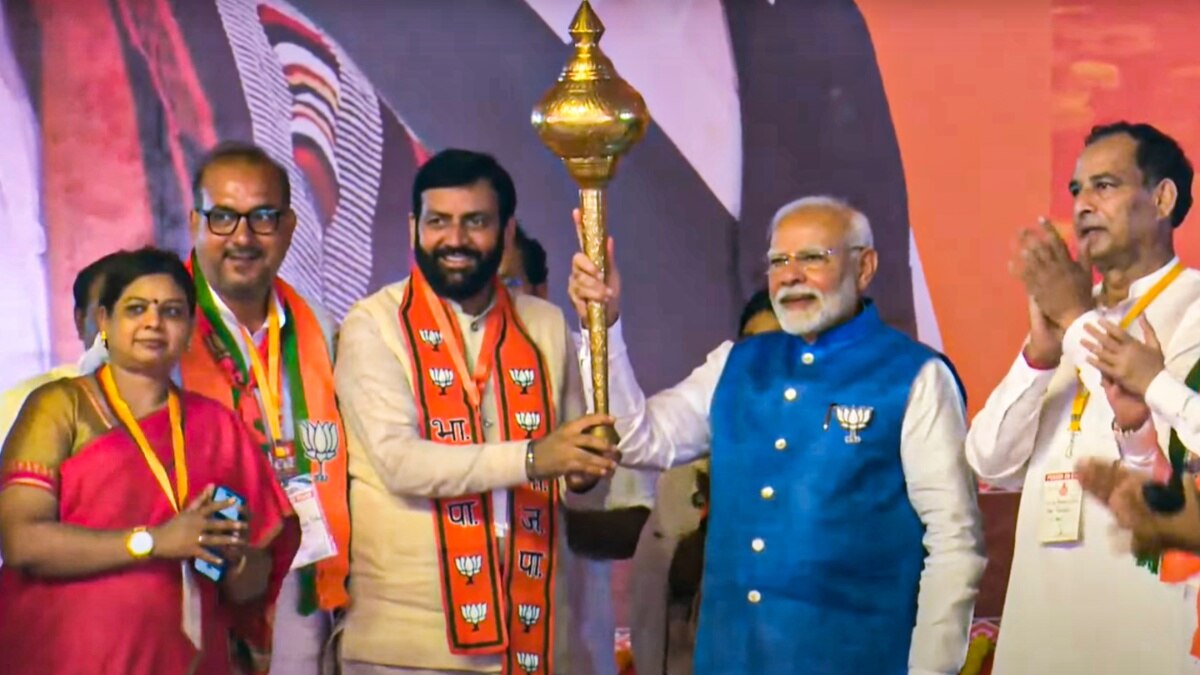A day after the Bharatiya Janata Party (BJP) secured the comfortable third term in Haryana, Chief Minister Nayyab Singh Saini, along with the party's state President Manohar Lal Khattar, landed in Delhi on Wednesday (September 8) to meet Prime Minister Narendra Modi. Singh is set to take oath as Haryana Chief Minister for the second time on Dusshera, Oct 12, as per reports.
Battling anti-incumbency, the BJP, months before the Haryana Assembly polls, replaced its strongman Manohar Lal Khattar as chief minister with low-profile OBC leader Nayab Singh Saini. The decision surprised many.
On Tuesday, the BJP's gamble paid off with Saini leading the party to victory in the Haryana Assembly polls after a dismal showing in the Lok Sabha elections in the state and defying exit poll predictions of a clean sweep for the Congress.
Thanking voters for BJP's win, Haryana Chief Minister Saini Tuesday said people have "put a stamp" on the government's policies under the leadership of Prime Minister Narendra Modi.
BJP's Performance Over The Years
With just six legislators in 2000, then two in 2005 and four in 2009, the BJP has now surged to 48 seats in Haryana. This performance surpasses even its 2014 breakthrough when the party first came to power on its own.
Before 2014, the BJP was restricted from playing second fiddle, mainly to parties like the INLD and then Bansi Lal-led Haryana Vikas Party (now merged with Congress). The saffron party contested the polls on all 90 seats on its own for the first time in 2014. In 2019, the BJP won 40 seats and formed the government in Haryana with the support of the JJP and some Independents.
Before the 47 seats it won in 2014 and 48 this year, the BJP's best-ever electoral performance in Haryana, carved out as a separate state in 1966, was 16 seats out of 20 it had contested in 1987. The Devi Lal-led INLD had swept to power that year.
However, in 1991, the BJP again went down, managing to win just two seats. In 1996, it won 11. Unlike now and 2019, in the 2014 assembly polls, the BJP did not declare anyone as its chief ministerial candidate and the polls were fought under collective leadership.


